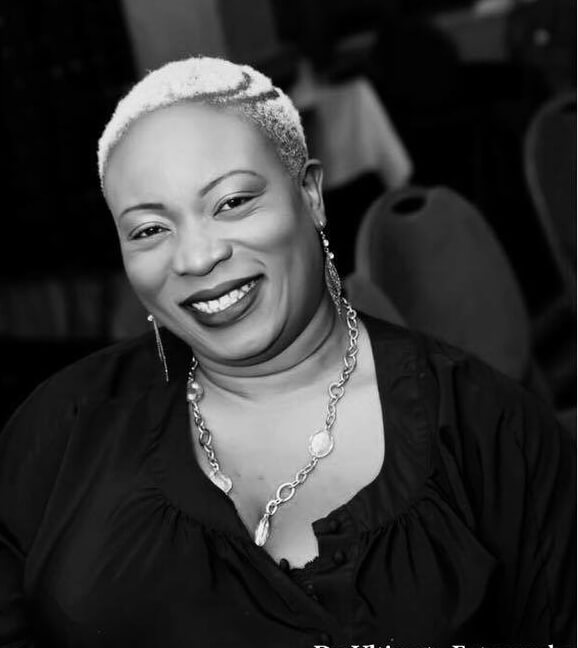Bridgerton, the Shondaland Netflix series is the drama that launched a thousand think pieces on issues like race and male sexual consent but for a series with as much rumpy pumpy in it, one of the most shocking aspects was how little the protagonist, Daphne, knew about sex.

Granted it was the Victorian era and young ladies back then were revered for their ‘purity’ and ‘innocence’, but it was eye-opening to see how clueless Daphne was about sex and marital relations. While we could criticize Daphne’s mother about how little she’d prepared Daphne, even today, talking to your child about sex can be fraught with questions and anxiety, making for an uncomfortable time for both parent and child.

Image credit: Liam Daniel/Netflix © 2020
As parents, we can all use some help in this area and so we spoke to a sex, intimacy, relationship coach and founder of Duchess Secrets, Iphie Mottoh for some advice.
As one of the UK’s leading Black sex coaches, Iphie Mottoh stresses the importance of parents taking a central role in educating their children about sex and sexuality.
She said: “It’s important for parents to have a healthy, age-appropriate dialogue with their children and arm them with the knowledge to empower and make good choices for themselves. We need to overcome our fear and own hang-ups, so that we can help our children develop their own healthy sexuality.”
Having these conversations with our children is important but broaching the topic can be daunting, particularly if you haven’t got a clue about where to start. Mottah advises tailoring conversations to age-appropriate levels, namely three different age groups. 5-11 years old (Primary School), 11-16 years old (Secondary School) and 16+ (young adults of consenting age).
Mottah shared with Melan some topics for parents to discuss with their teenagers below, but first here’s some guidance and ground rules on how to discuss relationships and sex with your teenagers.
- Keep it casual,
- Use your own experiences,
- Explain your values,
- Don’t interrupt them when they are speaking
- Don’t criticise or get angry
- Don’t assume they are sexually active if they ask about sex
- It is ok if you don’t know the answer, be honest and research together.
Topics on sex and relationships to discuss with your teenager

Different types of relationships
A platonic relationship. This is a friendship without any sexual attraction or desire and can be with the same sex or the opposite sex. In simple terms, it is a relationship that has no sexual undertones.
A sexual relationship. This is based on a sexual attraction that may lead to sex, sexual activity or not depending on the choices made by the people involved.
Inappropriate relationship. This usually involves one person coercing another into a situation they are not comfortable about, ready for or illegal. Your child needs to be told that they can make a choice and say NO!
Values and rights
As parents, we should try to guide/educate our teens on the values that we hold dear to help them make good choices for themselves. It is not about imposing our values but giving them enough information about their values and rights. To choose with a good conscience to consent or not consent to having sex. It’s also emphasising that they have the right to say no (withdraw consent) at any time, they don’t have to feel pressured to have sex because their friends and peers are doing it. Also, not to feel guilty or ashamed if they do choose to have sex.
Understanding gender
Gender identity has come a long way in recent years and is no longer only limited to ‘male’ and ‘female’. So, we should all be educating ourselves and our teens to understand other teens who identify as ‘non-gender’ or ‘transitioning’ for example. This enables conversations and promotes tolerance as our teens would feel comfortable asking us questions if they don’t understand and not be afraid about upsetting anyone.
Violence and staying safe
Unfortunately, we live in a world where sexual assaults are prevalent. The Crime Survey for England and Wales (March 2017) estimated that 20% of women and 4% of men have experienced some type of sexual assault since the age of 16, equivalent to 3.4 females and 631,000 males. These are staggering figures. This is why we need to discuss what sexual assault is, that it may not look violent, but they are still being violated. How to stay safe, let friends know where they are, recognise subtle aggression and how to leave a situation that makes them feel uncomfortable.
The human body and its development
As they reach puberty, there will be physical and hormonal changes taking place that may be confusing even if it’s been discussed in school. We need to allow our teens to discuss how they feel about the changes happening to them and how they can cope with it. Ranging from breast and penis development, changes in body shape, growth of pubic and body hair, erections with ejaculations, increased height, voice changes and the start of periods. It’s important to address and discuss these changes to ensure they don’t develop a negative body image. We also need to help them recognise emotional and social changes too so they don’t get overwhelmed with all these feelings and end up making choices that may not be right for them at that particular time.
Sexual and reproductive health
While these topics are taught in school, parents should follow up these discussions at home and find a way to make it about their teens. In particular try to approach these prior to when your teen starts their period or experiences erections with ejaculation. Most teens may not volunteer any information about the physical changes and their effect. Still, we can be proactive. Explain these changes may mean there could be consequences if they choose to practice unprotected sex. such as pregnancy or sexually transmitted diseases. Also, discuss that there may be emotional upheaval if they partake in casual sex.
While it may seem a lot to discuss all of this with our teens, we need to remember that it is our duty to prepare them for the world ahead concerning sex, sexuality and relationships.
So, in summary parents, please remember that it’s hard to go wrong if you are a good listener, are truthful and allow your teen to express their opinions. You might be surprised by how much closer you would become by discussing the subjects that most are shy about.












